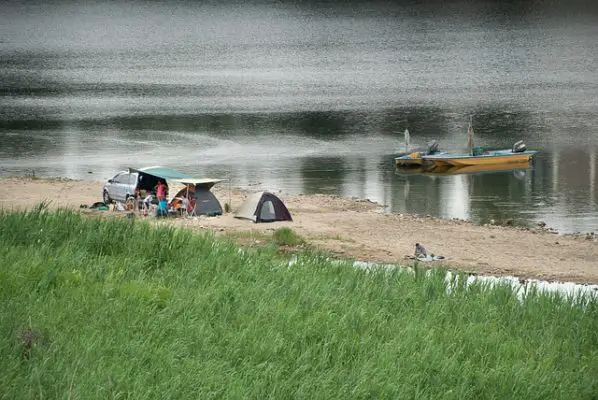Camping is a great way to spend quality time with your family while in the presence of nature. Spending a few days in the wilderness without any digital distractions will undoubtedly strengthen the bond between you and your family members. It is also an opportunity to teach your children how to be responsible and self-sufficient individuals. There are several hidden dangers in the great outdoors, and as a parent, you are responsible for your loved ones’ safety. These tips will help you keep your family safe on your next family camping trip.

Bring the essentials
It is vital that you bring your food and make sure to plan them based on your family’s food preferences and the duration of your trip. Go for nutritious but easy-to-carry food, preferably high-protein ones such as peanut butter sandwiches, nuts, beef jerky, and granola bars. There are also several cookout meals recipes that you can try that are healthy and easy to do. Avoid scavenging the woods for berries, mushrooms, or nuts, as some of them might be poisonous or dangerous to eat. Educate your children of the different toxic plants and remind them never to touch, pick, and eat anything that might look like food without your consent.
Bring your own water to avoid drinking from contaminated water sources that might cause waterborne diseases such as typhoid, cholera, diarrhea, amebiasis, and hepatitis. Make sure to pack a well-stocked first aid kit, cream and mosquito repellants, fire extinguisher, and medication for insect bites or allergies. Bring enough flashlights and provide a whistle with a lanyard to each of your family members. Teach them to use their whistles if they get lost or in a dangerous situation and highlight the importance of not using them for unnecessary and false alarms.
Educate your family on the basic camping rules
Create a buddy system and explain to your family members to always stay in pairs and never wander off alone. Remind your children never go near any water bodies without an adult and stay away from any animals, even those that look harmless as they could be carriers of unknown diseases. It is also easy to get disoriented in the woods, so make sure not to veer away from the marked trail and always make noise while hiking to alert nearby animals.
Remind your family to practice proper hygiene and wash their hands frequently, especially if they come in contact with any suspicious plants or insects. It is also critical that they are aware to never play with camp tools such as knives, axes, explosive equipment, or any items that can compromise their safety. Ensure that everyone knows how to safely build a fire, properly use a fire extinguisher, and never light a candle or play with matches or lighters, especially inside the tent.
Safeguard your surroundings and dress the part
Keep your campsite clean to avoid attracting wild animals and avoid bringing food inside the tent since wild animals can easily smell them even from a distance. Set up boundaries within the campsite and place designated markers around the area.
It is also important that everyone dress in multiple layers, as the temperature can drastically change throughout the day. Choose moisture-wicking clothing, and remember to bring your rain gear, hiking boots, jackets, and wool socks. Remind your children always to wear socks and enclosed shoes when walking in the woods.
Camping is undeniably one of the most affordable and easiest ways to reconnect with family. Families can bond while roasting marshmallows and hotdogs and focus on each other without distractions from the outside world.



